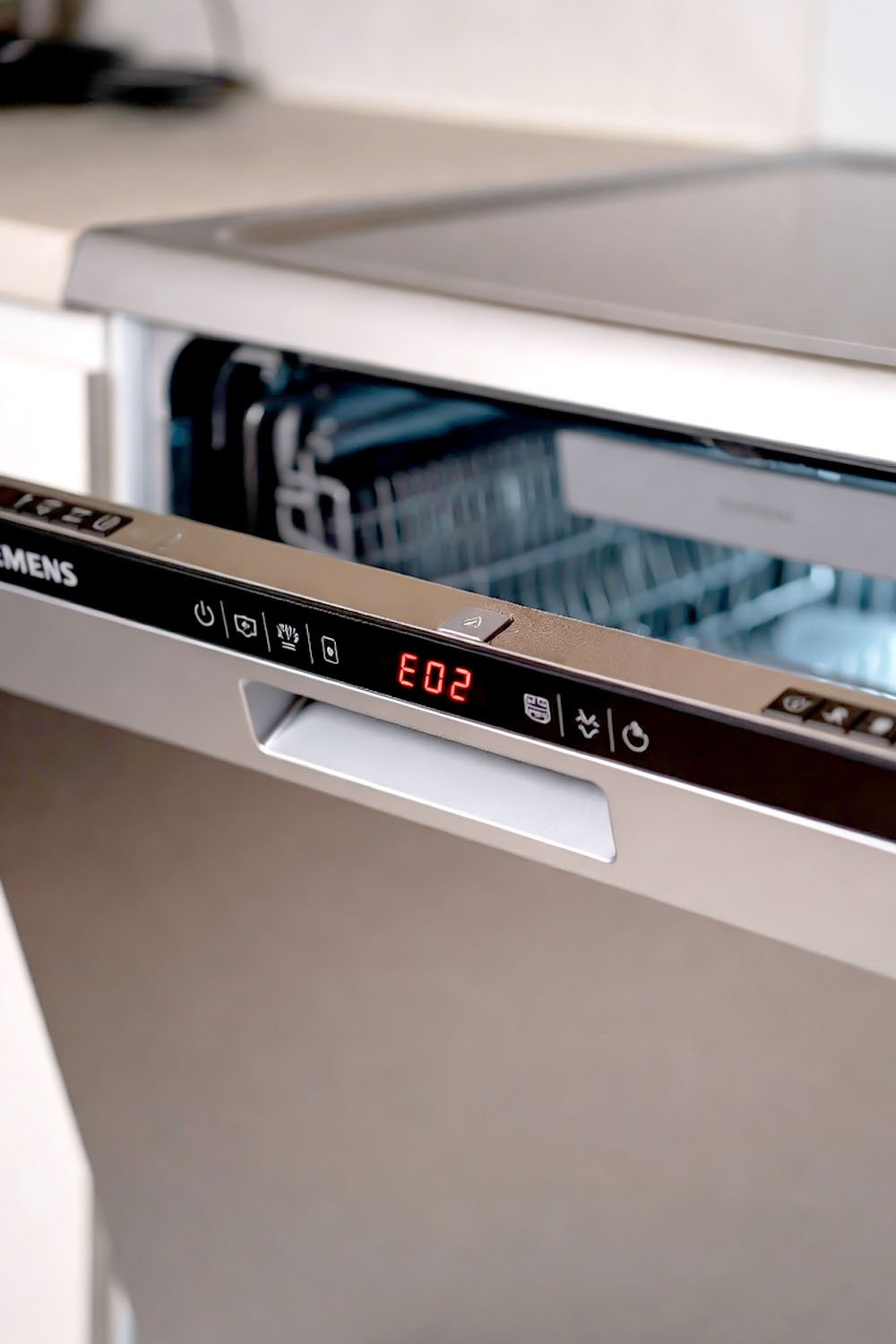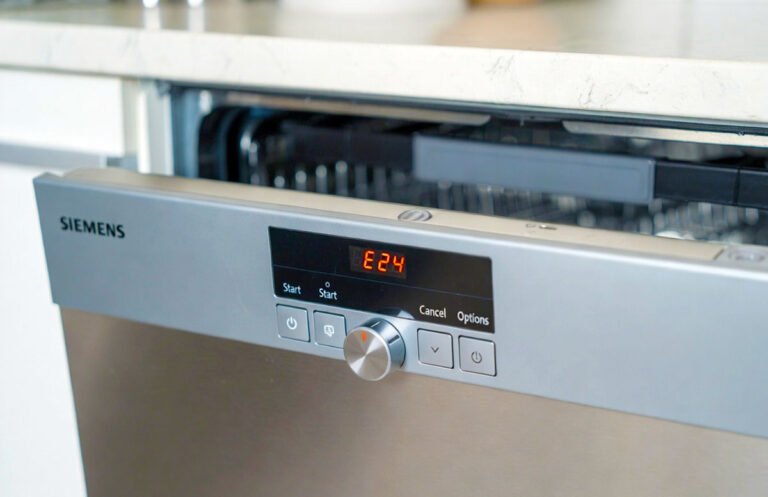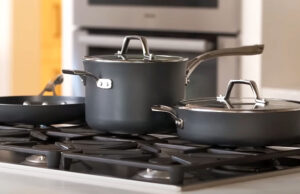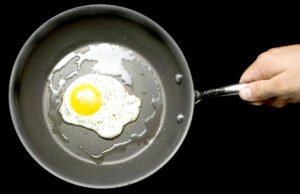As an Amazon Associate, I earn from qualifying purchases at no extra cost to you.
Beko Dishwasher Not Spraying Water? Fix It Now
If your Beko dishwasher is not spraying water, it can feel very frustrating. You expect clean dishes, but instead, you open the door to see food stuck everywhere. Many people face this issue, and it often has simple causes. In this article, you will learn the most effective ways to fix it quickly. Let’s break it down in simple steps so you can solve the problem with confidence.
Why Your Beko Dishwasher May Not Spray Water
Check the Water Supply First
When a Beko dishwasher is not spraying water, the very first thing you should look at is the water supply. If water is not entering the machine, then no spray arms can move at all. Many times, the water tap connected to the dishwasher may be turned off without you noticing. It could also be partly closed, which means less water flows in.
Another common issue is with the water hose. If the hose is bent or kinked, the water cannot move freely. A blocked or twisted hose will stop enough water from reaching inside the dishwasher. Because of this, the spray arms cannot spin, and your dishes stay dirty. Always make sure the hose is straight and clear.
The water inlet valve is another key part. This valve controls how much water enters the dishwasher. If it is faulty, then no matter how much you try, the dishwasher will not spray water correctly. Sometimes, the valve may get clogged with dirt or minerals from hard water. Cleaning or replacing it can make a big difference.
You should also check water pressure at home. Dishwashers need a good level of pressure to work well. If the pressure is very low, then water will not flow properly inside the machine. You can test pressure by opening a nearby tap. Weak flow means low pressure, and that must be fixed.
- Make sure the water tap is fully open
- Inspect the hose for bends or clogs
- Check the inlet valve for dirt or damage
- Confirm your home’s water pressure is strong
Inspect the Spray Arms Carefully
Another big reason why a Beko dishwasher is not spraying water is blocked spray arms. These arms spin around inside the dishwasher and throw water at the dishes. If the tiny holes in the arms are blocked, water cannot come out properly. Food bits, grease, and even hard water deposits can clog these holes.
When spray arms cannot spin, dishes are left dirty. Sometimes, small things like toothpicks or seeds get stuck inside. The arms may also crack or become loose, which stops them from working as they should. You should always remove the spray arms and check them closely.
Cleaning them is simple. Rinse the spray arms under running water and use a toothpick or small brush to clear blocked holes. If the buildup is heavy, soaking them in vinegar for a few hours works well. This removes mineral deposits and helps the water flow again.
If the spray arms are damaged, then cleaning will not help. In that case, you must replace them. Thankfully, spray arms are not too expensive, and they are easy to install yourself. Once replaced, the water should spray strongly again, leaving your dishes clean.
- Remove spray arms and rinse them
- Use a toothpick to clear blocked holes
- Soak in vinegar to remove minerals
- Replace if broken or cracked
Look at the Filter and Pump Area
Every dishwasher has a filter and pump system that controls water movement. If your Beko dishwasher is not spraying water, the filter may be clogged. A dirty filter blocks water flow and keeps the pump from working smoothly. This leads to poor spraying power.
Food scraps and grease often gather in the filter. If not cleaned regularly, this buildup grows thicker and thicker. Over time, water cannot pass through properly. Always check the filter under the bottom rack and remove any dirt. Cleaning it with warm water and mild soap works best.
The pump is equally important. This part pushes water into the spray arms. If the pump is blocked or broken, spraying stops completely. Sometimes small items, like glass pieces or food particles, block the pump. In such cases, you may hear strange noises from the machine.
Checking the pump is a little more advanced, but still possible. First, remove the filter and see if any dirt is around the pump area. If you find something stuck, carefully take it out. If the pump motor is damaged, you might need a technician. However, simple blockages can often be cleared at home.
- Clean the filter often to prevent blockages
- Look for food or dirt in the pump area
- Remove small objects carefully
- Call a technician if the pump motor fails
Examine the Detergent and Soap Usage
Sometimes, the problem is not mechanical but about detergent. If your Beko dishwasher is not spraying water properly, using the wrong soap can make it worse. Powder, liquid, and pods all work differently. If too much soap is used, it can create too many suds. Suds block the spray arms from spinning freely.
Hard water also plays a role. In areas with hard water, normal detergent may not clean well. This leaves residue inside the machine, which slowly clogs parts. To fix this, always use detergent designed for hard water or add a rinse aid. This reduces buildup and improves spraying.
Also, check if detergent is being released at the right time. If the dispenser door is stuck, then the detergent will not enter the wash cycle. Without detergent mixing, water spraying may seem weaker. Open the dispenser after a wash to see if soap is used up. If it is still there, the dispenser may need fixing.
Sometimes, using low-quality detergent causes long-term problems. Cheap brands often leave behind residue. Over time, this blocks the spray holes and reduces water pressure. Always pick a good brand that is trusted and tested.
- Do not use too much detergent
- Add rinse aid for hard water areas
- Check if detergent door opens fully
- Choose high-quality dishwasher detergent
Pay Attention to the Door and Latch System
The dishwasher door and latch system might not seem related to spraying, but they are. If the door is not closing tightly, the Beko dishwasher will not start spraying water. This happens because the machine thinks the door is still open.
Sometimes, dirt or soap buildup on the door edges keeps it from closing properly. Cleaning the edges with a damp cloth can fix this easily. At other times, the latch itself may be broken or loose. If that happens, the dishwasher cannot lock correctly.
You may also notice water leaking from the door when the latch is not tight. This is a clear sign that the door is not sealed. When water leaks, the spray arms lose pressure. That means less water reaches the dishes, and cleaning suffers.
Replacing a latch is not very hard. Many users can do it themselves with a screwdriver. However, if the door hinges are bent, you may need professional help. Always test by closing the door firmly and listening for a clicking sound. That sound means the latch is working right.
- Clean the door edges often
- Check if the latch clicks when closing
- Watch for leaks around the door
- Replace broken latches quickly
Check the Motor and Electrical Parts
The motor is the heart of your dishwasher. If your Beko dishwasher is not spraying water, a weak or broken motor could be the reason. The motor powers the pump that pushes water through the spray arms. If it fails, no water can spray.
Sometimes, the motor may just be dirty or blocked. Small objects may stop it from turning freely. Cleaning around the motor can solve the issue. But if the motor is burned out, you will hear humming or no sound at all. In such cases, replacement is needed.
Electrical connections also matter. Loose wires or faulty switches can cut power to the motor. Without power, the pump will not run, and the spray arms stay still. You should check the control panel and wiring for signs of damage. Burn marks, loose ends, or melted wires are signs of trouble.
Testing electrical parts requires care. If you are not comfortable, calling a professional is best. Still, knowing that the motor and wiring affect spraying helps you understand the issue better. Once these are fixed, water spraying becomes strong again.
- Inspect the motor for dirt or blockage
- Listen for humming or silence during cycles
- Check wiring for burns or looseness
- Replace or repair faulty parts with help
Final Thoughts
A Beko dishwasher not spraying water is stressful, but most causes are simple. From water supply issues to spray arm clogs, many fixes can be done at home. Cleaning, checking, and replacing small parts often solve the problem. With regular care, your dishwasher will run smoothly again. Never ignore small signs, as fixing them early saves time and money.
| Problem | What to Check | Easy Fix | When to Call a Pro |
|---|---|---|---|
| No water spray | Water supply, inlet valve | Open tap, clean hose | If valve is broken |
| Weak spray | Spray arms, filter | Clean arms and filter | Replace damaged parts |
| No detergent release | Soap door stuck | Clean or replace dispenser | If door mechanism fails |
| Door not sealing | Latch system | Clean or replace latch | If hinges are bent |
| Pump issues | Blocked pump or motor | Clear dirt, clean pump | If motor is burned |
Do dishwashers work without spraying water?
When thinking about how dishwashers clean, spraying water is the most important part. If your Beko dishwasher is not spraying water, then it cannot clean dishes properly. Dishwashers work by mixing water with detergent and spraying it at high pressure. This strong spray breaks food particles and washes them away. Without spraying, dishes simply sit in warm water.
Some people think soaking in hot water may clean dishes, but that is not true. Food grease and dirt need movement and pressure to be removed. Just filling the dishwasher with water will only soften the dirt but not remove it. That is why spray arms and pumps are so important in every wash cycle.
Dishwashers are built with careful design. The spray arms spin fast to make sure water reaches every dish from every angle. If the spray arms do not move, some dishes remain dirty. You may notice stains, stuck food, and soap marks. Over time, this also causes smell inside the machine.
Another key point is hygiene. Spraying water with heat kills bacteria and makes dishes safe for use. If spraying is missing, then bacteria may still remain on plates and glasses. That is risky for health, especially if you serve food to children or older people.
So, no, dishwashers cannot work without spraying water. The spraying action is the heart of how they function. Fixing any spraying issue is necessary if you want clean, safe dishes. Without it, the dishwasher loses its whole purpose.
Can a blocked filter stop water spraying in a Beko dishwasher?
Yes, a blocked filter can completely stop water spraying in your Beko dishwasher. The filter is placed at the bottom to trap food, dirt, and small items. When it is clean, water flows freely into the pump and then to the spray arms. But if it is blocked, water cannot move well.
A blocked filter forces the pump to work harder. The pump may make noise, but the pressure is too weak for the spray arms to turn. This makes the dishwasher run, but dishes still come out dirty. You may see food stuck on plates or glasses looking cloudy.
Cleaning the filter is very simple and does not take long. You can remove it by lifting the bottom rack. Rinse it under warm water and scrub with a soft brush if needed. Doing this once a week prevents most problems. If you use the dishwasher daily, then even more often cleaning may be needed.
Sometimes, filters also get damaged or cracked. A broken filter cannot trap dirt properly. This dirt then goes to the pump and blocks it too. That makes things worse, as both the filter and pump get affected. Replacing a filter is affordable and keeps your dishwasher safe.
So yes, always check your filter when the spray stops. Most of the time, it is the hidden reason for weak or no water spray. A clean filter means a healthy dishwasher with strong cleaning power.
Do I need a technician if my Beko dishwasher spray arms are not moving?
Not always. If the spray arms of your Beko dishwasher are not moving, it does not always mean you need a technician. Many times, the problem is only blockage. Small food particles, grease, or hard water deposits clog the tiny holes. This prevents water from coming out strongly. Without strong flow, the arms cannot spin.
Cleaning is the first thing you should try. Remove the spray arms and wash them under running water. Use a toothpick or thin wire to clear the holes. If the buildup is heavy, soaking the arms in vinegar can help. Once cleaned, many people see their dishwasher working perfectly again.
But sometimes, the problem is bigger. If the arms are cracked or broken, they will not spin no matter how much you clean. In that case, replacement is the only solution. Thankfully, spray arms are easy to replace and do not cost much. You can even order them online and fit them yourself.
If cleaning and replacement do not help, then the issue may be with the pump or motor. The pump pushes water into the spray arms. If it is weak or damaged, water pressure is not enough to spin them. This usually needs professional repair.
So, a technician is not always needed at first. Try cleaning and replacing spray arms yourself. But if the problem continues, calling a technician is the safe choice.
Can wrong detergent stop a Beko dishwasher from spraying water?
Yes, using the wrong detergent can cause spraying problems in a Beko dishwasher. Detergents are made differently for dishwashers than for hand washing. If you use normal dish soap, it creates too many bubbles. These bubbles block water flow and stop spray arms from spinning. The machine may even overflow with foam.
Even with the right detergent, using too much is a problem. Too many suds stick to the spray arms and block them. Over time, residue builds inside holes and pipes. This slows down spraying and makes cleaning weaker. Always use the recommended amount of detergent only.
Hard water areas make things worse. Minerals in the water mix with soap and form thick deposits. These deposits cover spray holes and stop water flow. That is why rinse aid is so important. It prevents buildup and keeps spraying strong.
Cheap detergents may also leave behind residue. They do not dissolve fully and form sticky layers inside the dishwasher. This slowly reduces performance. Choosing a trusted brand makes a big difference for long-term use.
So yes, wrong detergent can directly stop water spraying. Always pick dishwasher-safe detergents, measure them correctly, and add rinse aid if needed. These small steps prevent big problems and keep your Beko dishwasher working well.
Frequently Asked Questions (FAQs)
Is it normal for a Beko dishwasher to make noise when not spraying?
It is common for dishwashers to make some noise. But if your Beko dishwasher is not spraying water, then unusual noises may mean a problem. For example, a humming sound may come from a weak motor trying to start. A grinding sound may mean something is stuck in the pump. Clicking sounds can come from a faulty spray arm hitting dishes. Normal noises are soft swishes or water flow sounds. If you hear sharp or loud noises, it is not normal. Always check the pump, motor, or spray arms when strange sounds appear.
Can low water pressure stop my Beko dishwasher from working?
Yes, low water pressure can stop your Beko dishwasher from spraying water. Dishwashers need a certain level of water force to work well. If the pressure is too low, the spray arms will not spin. Dishes will stay dirty, and the cleaning cycle becomes weak. You can test pressure by opening a nearby tap. If water flow is slow, pressure is low. In such cases, you may need to adjust your home’s water system or call a plumber.
Do I need to replace my Beko dishwasher if spray arms do not work?
Not always. Spray arms are small parts that can be cleaned or replaced easily. If they are blocked with food or grease, cleaning may solve the problem. If they are broken, replacement is affordable and simple. Only if the motor or pump is badly damaged might you think of replacing the whole dishwasher. Even then, repairs are often cheaper. Replacing the dishwasher is the last option, not the first.
Is it safe to keep using a Beko dishwasher that is not spraying water?
No, it is not safe. If the dishwasher is not spraying water, then dishes are not cleaned properly. Dirty dishes can carry bacteria and cause health problems. Also, if the machine runs without spraying, it may overwork the pump and motor. This can lead to bigger damage over time. It is better to stop using the dishwasher until the issue is fixed. That way, you protect your health and your machine.
Can cleaning vinegar fix a Beko dishwasher not spraying water?
Yes, vinegar can help. Hard water leaves mineral deposits inside the dishwasher. These deposits block spray holes, filters, and pipes. Vinegar is very good at removing them. You can soak spray arms in vinegar for a few hours. Running an empty cycle with vinegar also cleans inside parts. But vinegar is not a fix for everything. If the pump or motor is broken, vinegar cannot help. Still, it is a good natural cleaning method to try.
Is it possible for a Beko dishwasher door to stop water spraying?
Yes, the door is connected to the latch system. If the door does not close tightly, the dishwasher thinks it is open. Then, spraying will not start. Even small leaks from the door edges can reduce water pressure. That means weaker spraying inside. Cleaning door edges, checking the latch, and replacing broken parts usually fix the issue. Always listen for the “click” sound when closing the door to be sure.
Do I need special detergent for hard water areas in my Beko dishwasher?
Yes, hard water makes cleaning harder. Normal detergent may not dissolve well in hard water. This leaves spots on glasses and blocks spray arms. Special detergents for hard water are designed to prevent this. Adding rinse aid also helps by keeping minerals away from parts. If you live in a hard water area, using the right detergent makes your dishwasher last longer and clean better.
Can I repair a Beko dishwasher motor at home?
Repairing a motor at home is not easy. The motor is a complex part with electrical connections. If it is blocked by dirt, you can clean around it. But if it is burned or broken, repairing it requires skill and tools. Most people replace the motor instead of repairing it. If you do not have experience, calling a technician is safer. Working with electrical parts without training can be dangerous.








